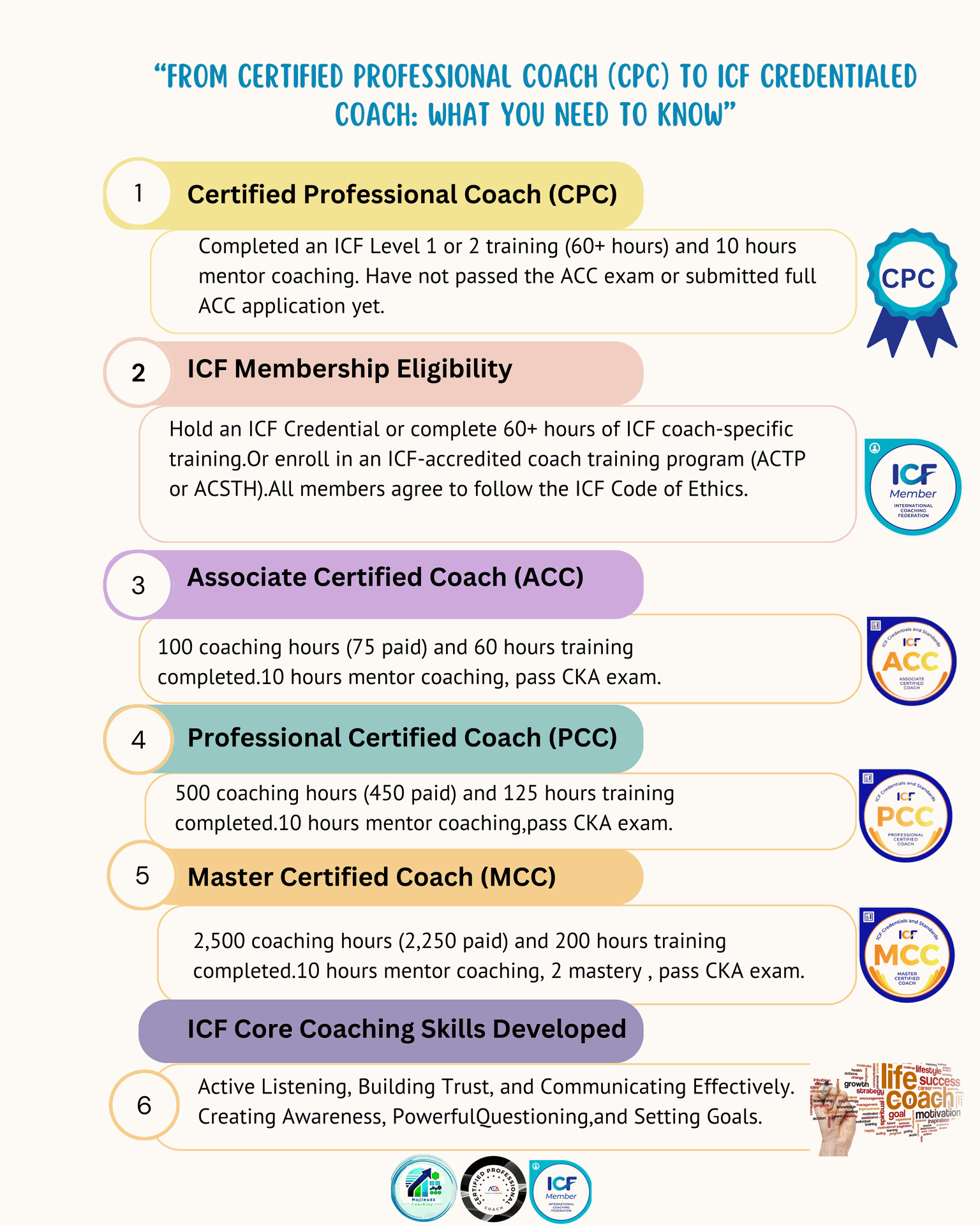In today’s world, many people call themselves "coaches"—life coaches, business coaches, executive coaches, professional coach,and more. But what truly sets a professional coach apart? In this article, let’s explore how a coach become recognized by the International Coaching Federation (ICF)—the world’s leading organization dedicated to advancing the coaching profession.
What Is the ICF?
The International Coaching Federation (ICF) is the most widely recognized global body for professional coaching. Established in 1995, ICF sets high standards for coach training, ethics, and competencies. Its mission is to advance the art, science, and practice of professional coaching.
Headquartered in Lexington, Kentucky, USA, ICF has a truly global reach, with thousands of members and credentialed coaches spanning over 140 countries. As of recent reports, more than 50,000 coaches worldwide have earned an ICF Credential—making it the gold standard in professional coaching.
Why ICF Matters
ICF is not just a membership organization—it’s a professional community that sets the standard for what coaching is and how it should be practiced. Its core values include integrity, excellence, collaboration, and respect. By becoming an ICF-accredited coach, coach demonstrate a commitment to quality, ethics, and client-centered practice.
How coach Become an ICF-Credentialed Coach
ICF offers three levels of credentials:
1. Associate Certified Coach (ACC)
2. Professional Certified Coach (PCC)
3. Master Certified Coach (MCC)
Each level has clear and rigorous requirements related to coach-specific training, mentor coaching, coaching experience, and passing a knowledge assessment.
Step 1: Certified Professional Coach Status
Coaches have
• Completed an ICF-accredited Level 1 or 2 training (60+ hours), and
• Received 10 hours of mentor coaching
• 100 hours of coaching (75 paid)
…then they are on the path to apply for the Associate Certified Coach (ACC) credential!
Step 2: ICF Membership Eligibility
To become an ICF Member, coaches must:
• Hold a current ICF credential (ACC, PCC, or MCC), OR
• Complete at least 60 hours of coach-specific training, OR
• Be enrolled in an ICF-accredited program (ACTP or ACSTH)
All members commit to the ICF Code of Ethics, ensuring professionalism and trust.
Step 3: Certified Professional Coach Status
If coaches have:
• Completed an ICF-accredited Level 1 or 2 training (60+ hours), and
• Received 10 hours of mentor coaching
…then coaches on the path to apply for the Associate Certified Coach (ACC) credential!
Step 4 : The ICF Credential Journey
ACC Requirements:
• 100 hours of coaching (75 paid)
• 60 hours coach-specific training
• 10 mentor hours over 3+ months
• Pass the CKA exam
PCC Requirements:
• 500 hours of coaching (450 paid)
• 125 hours of training
• 10 mentor hours
• Pass the CKA
MCC Requirements:
• 2,500 hours of coaching (2,250 paid)
• 200 hours of training
• Two mastery-level sessions submitted
• 10 mentor hours
• Pass the CKA
Coaching Skills Coaches will Develop
• Active Listening
• Trust Building
• Powerful Questioning
• Goal Setting
• Ethical Practice
• Client Partnership
• Creating Awareness
• Communicating Effectively
A Profession, Not Just a Title
In a field that is growing rapidly, ICF plays a crucial role in maintaining the professionalism of coaching. Having an ICF credential is more than just a badge—it’s a symbol of trust, credibility, and excellence.
So if you’re serious about coaching as a career—or if you're searching for a coach you can trust—look for the ICF accreditation. It’s your assurance that the coach has met global standards and is committed to continued growth and ethical practice. 